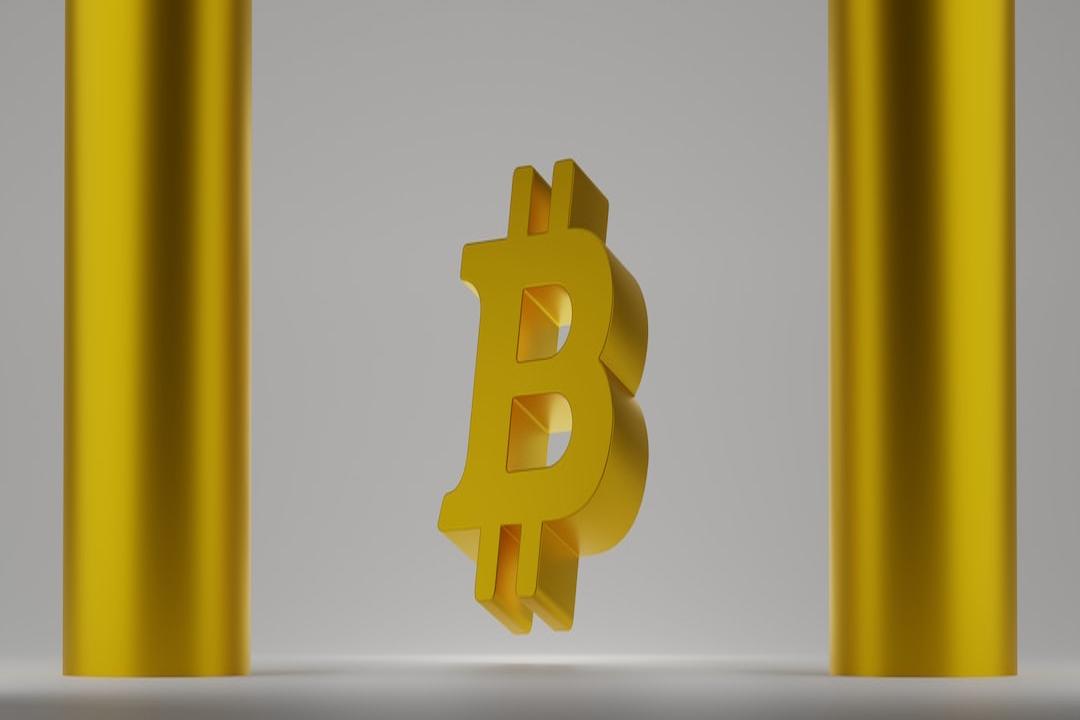CoinWorld reported:
The U.S. Securities and Exchange Commission (SEC) has issued a Wells notice to OpenSea, intensifying the debate over cryptocurrency asset regulation and highlighting the long-standing legal and regulatory challenges it faces.
Written by:
Eterna Capital
Translated by: Blockchain in Plain Language

Recent reports indicate that the SEC has sent a Wells notice (a precursor to formal charges) to the popular NFT marketplace OpenSea, adding a new chapter to the legal saga that has troubled the blockchain industry for years. It is widely recognized that the SEC’s historical stance is that “everything other than Bitcoin is a security”—including NFTs, as indicated in the notice sent to OpenSea. The debate over whether cryptocurrency assets qualify as securities or commodities is crucial: it determines whether the SEC or the CFTC is responsible for regulation. Essentially, this is a judicial exercise aimed at understanding what can be considered a “security” as defined in 1946, thus making it difficult to apply to modern technologies such as cryptocurrencies. The resulting uncertainty and regulatory incoherence have been major limitations to the growth of the cryptocurrency industry, as they hinder adoption rates, research and development investments, and funding.
Astute investors have noted that recent judicial developments suggest the SEC has failed to persuade the courts—and its chances of succeeding through further litigation are diminishing.
1. SEC v. CONSENSYS
1) After ETH 2.0
In June 2024, the SEC dropped its investigation into Consensys regarding Ethereum 2.0 (the blockchain’s transition to proof of stake). According to Consensys’s own statement, “this means the SEC will not bring charges based on the sale of ETH as a security.” This is certainly good news—but keen observers are more inclined to wait for the SEC’s announcement regarding the investigation into Consensys’s ETH 2.0 transactions and Ripple.
Today, our optimistic outlook on these aspects is also justified.
2) Before ETH 2.0
Before Ethereum transitioned to proof of stake (i.e., the proof-of-work era), the SEC might still investigate Consensys’s Ethereum transactions. What may concern investors is not the lawsuit itself, but its content: the lawsuit initiated by the SEC regarding Consensys’s proof-of-work activities could contain details that would worry ETH investors about whether these details could be considered securities.
Fortunately, the likelihood of such a lawsuit occurring is decreasing for two reasons:
Cryptocurrency has become a polarized and politicized topic, with both presidential candidates not underestimating it;
The approval of a spot Ethereum ETF can be viewed as a definitive conclusion to the “securities versus commodities” debate.
2. SEC v. RIPPLE
1) Subtle Ruling
In August 2024, Judge Torres issued a landmark ruling, determining that Ripple’s sale of its Token (XRP) to institutional investors constituted an unregistered securities offering. While this resulted in a civil fine of $125 million, the amount being lower than the SEC’s requested $2.5 billion is seen as a victory. Additionally, the court ruled that XRP’s secondary sales on trading platforms do not constitute securities transactions, which is regarded as a win for Ripple and all cryptocurrencies.
However, this is a bittersweet victory: Judge Torres’s ruling acknowledges that XRP can be considered a security in certain contexts—but it is not a unified security for all transactions. This highlights the complexities of applying traditional (i.e., “unreformed”) securities laws to cryptocurrencies and allows the SEC to take action in different circumstances.
2) Legal Implications
Is the case over? Probably not. Both parties must file appeals by October 6. Ripple may choose to take its “victory” without appealing. Conversely, the SEC may appeal (in fact, it attempted to do so before the trial concluded in August 2023—predictably, Judge Torres dismissed the appeal). While the appellate court is likely to support Judge Torres’s unorthodox ruling, there is no guarantee.
Binding precedent? Unlike the often-misreported situation, it is important to note that this ruling does not have binding authority (unless approved by the appellate court). On the other hand, it is equally important to note that the momentum is clearly positive: in fact, other judges have cited the SEC v. Ripple case in other cases (for example, in a case involving the BNB Token, the Ripple ruling was cited in SEC v. BN, favoring the defendant in July 2024).
What about other altcoins? Even if the Ripple case concludes with binding precedent, it would still impact most other altcoins: indeed, XRP is an exception, as it has never undergone an ICO and its consensus is not based on proof of stake.
3. SEC’s Strategic Shift
The Consensys and Ripple cases can be viewed as significant challenges to the SEC’s enforcement strategy, particularly in its pursuit of broad penalties and its approach to enforcing compliance in the cryptocurrency space.
1) Political Support
Both cases occur against a backdrop of increasing political scrutiny of the SEC’s regulatory stance on cryptocurrencies. Experts often overlook the fact that the SEC is an independent regulatory body that is supposedly not subject to political influence. Nevertheless, driven by the election, we see an unusual bipartisan effort in Congress to curtail the SEC’s power and provide clearer regulatory guidelines.
Even prominent Democrats like Pelosi and Schumer have diverged from the Biden administration, supporting legislation that brings regulatory clarity to the cryptocurrency industry and reduces the SEC’s broad enforcement discretion. Meanwhile, Trump has criticized the current administration’s handling of the SEC, even hinting that he would fire Gary Gensler if re-elected—though the U.S. President lacks the authority to dismiss the SEC Chair.
2) A Series of Legal Setbacks
The SEC’s regulatory actions in the cryptocurrency sector face significant legal challenges. In fact, shortly after the Consensys and Ripple cases, an appellate court ruled that the SEC’s rejection of Grayscale’s spot Bitcoin ETF application was “arbitrary and capricious,” raising questions about the agency’s decision-making process. The SEC has faced public scrutiny after dropping charges against Ripple’s co-founder. Weeks later, a Utah court condemned the agency for “serious abuse of power” in a case involving another cryptocurrency project. The SEC also seems to face similar challenges in its case against Coinbase.
These events, combined with the SEC’s eventual grudging approval of spot BTC and ETH ETFs, indicate a shift in the SEC’s approach.
4. Conclusion: A Turning Point?
The Consensys and Ripple cases have yet to achieve a decisive victory but mark a turning point in the struggle between the SEC and cryptocurrencies. They underscore the necessity for clear legislation, laying the groundwork for the development of case law: given that the industry is still in its infancy, relying on case-by-case court rulings will impede the long-term advancement of cryptocurrencies.
While the SEC may consider appealing, and other cases continue to be litigated, emerging trends favor the technology. This is a result of judicial developments, the politicization of the topic, and the undeniable success of spot ETFs (not merely financial).
In this context, even if the SEC subsequently issues a notice and files a lawsuit against OpenSea, it can be attributed to a “stale situation.” Regardless of the outcome of the November elections, uncertainty remains the only constant factor, but institutional investors can now reasonably expect that the judicial developments being considered here will ultimately release the regulatory clarity they have been waiting for over the years

